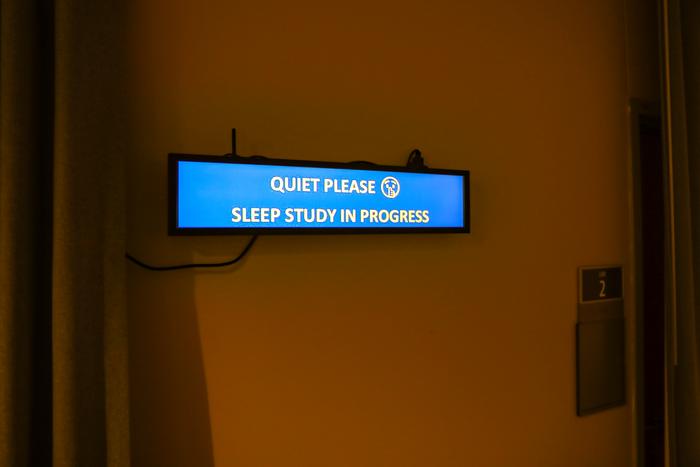New research from Oregon Health & Science University reveals negative health consequences for people who are overweight and ignore their body’s signals to sleep at night, with specific differences between men and women.
New research from Oregon Health & Science University reveals negative health consequences for people who are overweight and ignore their body’s signals to sleep at night, with specific differences between men and women.
The study published this week in The Journal of Clinical Endocrinology & Metabolism.
“This study builds support for the importance of good sleep habits,” said lead author Brooke Shafer, Ph.D., a postdoctoral researcher in the Sleep, Chronobiology and Health Laboratory in the OHSU School of Nursing. “Sleep practices, like going to bed when you’re tired or setting aside your screen at night, can help to promote good overall health.”
The study recruited 30 people, split evenly between men and women. All had a body mass index above 25, which put them into an overweight or obese category.
“Obesity and cardiometabolic disease are growing public health concerns,” Shafer said. “Our research shows that disruptions in the body’s internal biological clock could contribute to negative health consequences for people who may already be vulnerable due to weight.”
Generally healthy participants contributed a saliva sample every 30 minutes until late in the night at a sleep lab on OHSU’s Marquam Hill campus to determine the time at which their body started naturally producing the hormone melatonin. Melatonin is generally understood to begin the process of falling asleep, and its onset varies with an individual’s internal biological clock.
Participants then went home and logged their sleep habits over the following seven days.
Researchers assessed the time difference between melatonin onset and average sleep timing for each participant, categorizing them into two groups: those who had a narrow window, with a short time duration between melatonin onset and sleep, and those with a wide window, with a longer duration between melatonin onset and sleep. A narrow window suggests someone who is staying awake too late for their internal body clock and is generally associated with poorer health outcomes.
The new study confirmed a variety of potentially harmful health measures in the group that went to sleep closer to melatonin onset.
It also found key differences between men and women. Men in this group had higher levels of belly fat and fatty triglycerides in the blood, and higher overall metabolic syndrome risk scores than the men who slept better. Women in this group had higher overall body fat percentage, glucose and resting heart rates.
“It was really somewhat surprising to see these differences present themselves in a sex-dependent manner,” said senior author Andrew McHill, Ph.D., assistant professor in the OHSU School of Nursing, the School of Medicine and the Oregon Institute of Occupational Health Sciences at OHSU. “It’s not one size fits all, as we sometimes think in academic medicine.”
The next phase of research will determine sex-specific differences in groups that experience more severe changes in sleep patterns, such as workers pulling overnight shifts.
“We want to figure out possible interventions that keep this vital core group of the workforce healthy,” Shafer said.
This work was supported by the National Heart, Lung, And Blood Institute of the National Institutes of Health, awards T32HL083808, K01HL146992, R01HL105495, R35HL155681; and the National Center For Advancing Translational Sciences of the NIH, awards UL1TR000128, UL1TR002369 ; and by the Oregon Institute of Occupational Health Sciences at OHSU via funds from the Division of Consumer and Business Services of the state of Oregon (ORS 656.630). The content is solely the responsibility of the authors and does not necessarily represent the official views of the National Institutes of Health.
Journal
The Journal of Clinical Endocrinology and Metabolism
DOI
10.1210/clinem/dgae580
Method of Research
Observational study
Subject of Research
People
Article Title
Circadian alignment, cardiometabolic disease, and sex specific differences in adults with overweight/obesity
Article Publication Date
20-Aug-2024





